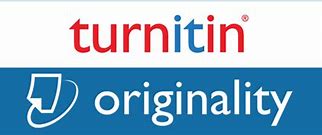KEBIJAKAN PEMBERANTASAN ILLEGAL FISHING DI ZONA EKONOMI EKSKLUSIF INDONESIA LAUT CINA SELATAN TAHUN 2017
DOI:
https://doi.org/10.47313/jib.v41i64.703Keywords:
Government Policy, Eradication of illegal fishingAbstract
There have been many changes from time to time in fish resources in the waters of the South China Sea. These changes are caused by irresponsible people who carry out illegal fishing or commonly called illegal, unreported and unregulated fishing (IUU-fishing). Handling and eradication of illegal fishing will support the targets needed in economic development programs maritime based. In addition, illegal fishing in an exclusive economic zone, specifically in the South China Sea, not related to fishing will have an impact on losses, moreover more worrying is the matter of the Republic of Indonesia's sovereignty at stake. Not being able to eradicate and provoke illegal means that the dignity and national dignity in the eyes of the international community will be even worse. The government needs to improve and improve the oversight problem that controls fish resources in Indonesian fisheries by foreign vessels and national fishing vessels. In addition, the Ministry of Maritime Affairs and Fisheries needs to formulate steps set out in the rules and eradicate illegal fishing practices. Based on this description, there are two questions that will be answered in this study, namely: (1) What is the policy and coordination system between government institutions in combating illegal fishing in Indonesia's Exclusive Economic Zone, especially in the South China Sea? (2) Why is the practice of illegal fishing in Indonesia's Exclusive Economic Zone, specifically in the South China Sea difficult to overcome, and what are its weaknesses? Where this research uses qualitative methods, which consist of writings either books, journals, or mass media. And can also consist of words and writings from people who are close intact, in other words the data include descriptive data.References
Fauzi, Akhmad. 2005. Kebijakan Perikanan dan Kelautan; Isu, Sintesis, dan Gagasan, Jakarta: Gramedia Pustaka Utama.
Kepala Pusat Data, Statistik dan Informasi, dalam http://www.kkp.go.id/index.
Kompas, Edisi 7 Juli 2010.
Kusumastanto, Tridoyo. 2006. Revitalisasi Perikanan dan Kelautan Secara Berkelanjutan, Bogor: Institute Pertanian Bogor.
Majalah Tempo, Edisi 3-8 Mei 2010.
Rifai, Bahtiar. 2007. Pengembangan Potensi Ekonomi Perikanan Tangkap, Jakarta: Pusat Penelitian Ekonomi LIPI.
Siombo, Marhaeni Rai. 2010. Hukum Perikanan Nasional dan Internasiona, Jakarta: Gramedia Pustaka Utama.
Solihin, Akhmad. 2010. Politik Hukum Kelautan & Perikanan; Isu, Permasalahan, dan Telaah Kritis Kebijakan, Bandung: Nuansa Aulia.
Subri, Mulyadi. 2004. Ekonomi Kelautan, Yogyakarta: Rajagrafindo Persada.
Moleong, Alex J. 2003. Metode Penelitian Kualitatif, Jakarta: Rosda.
Singaribun, Masri. 1993. Metode Penelitian Survay, Jakarta: LP3ES.
Salim, Agus (ed.). 2001. Teori dan Paradigma Penelitian Sosial, Yogyakarta: Tiara Wacana.
Hariwijaya, M. 2007. Metodologi dan Teknik Penulisan Skripsi Tesis dan Disertasi, Yogyajarta: Elementera Publising.








